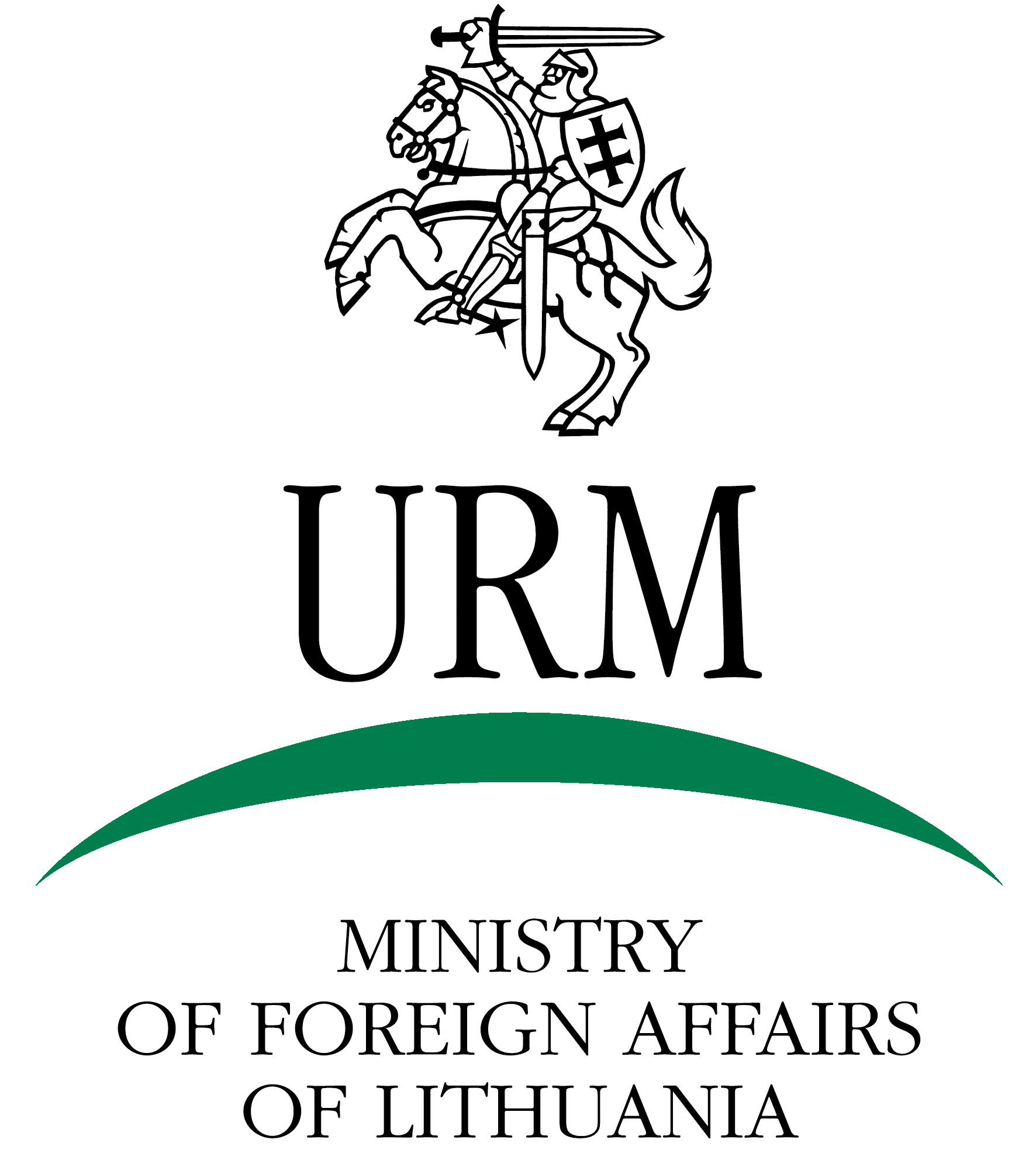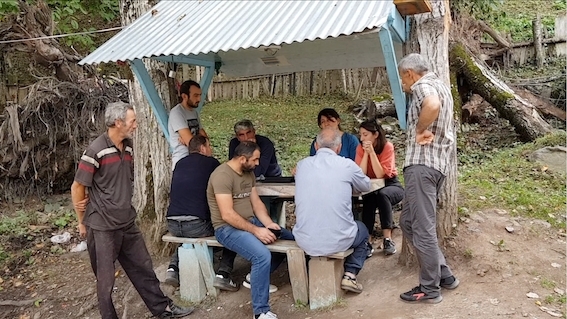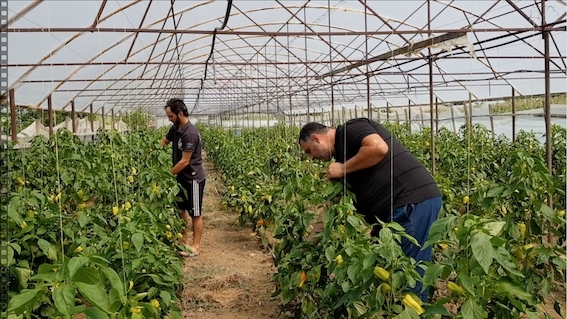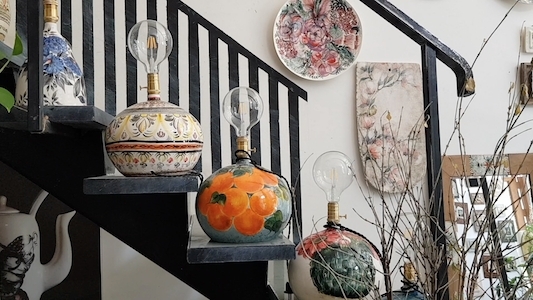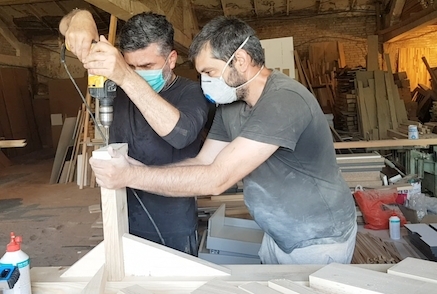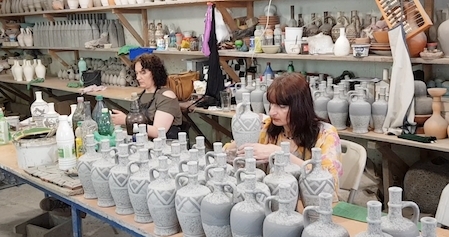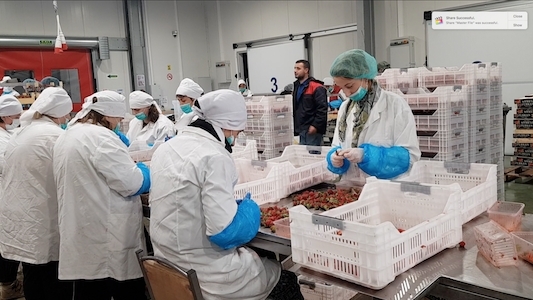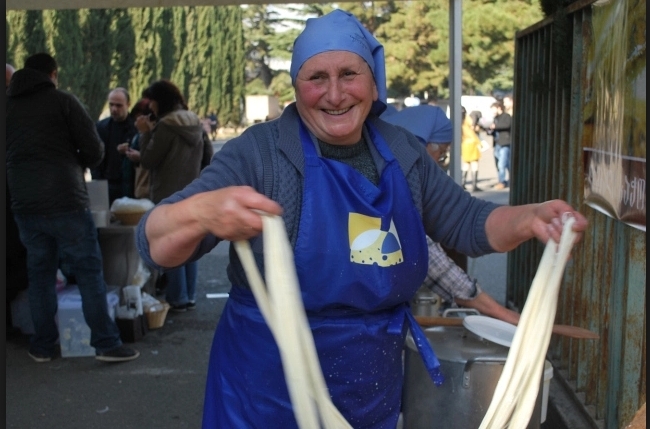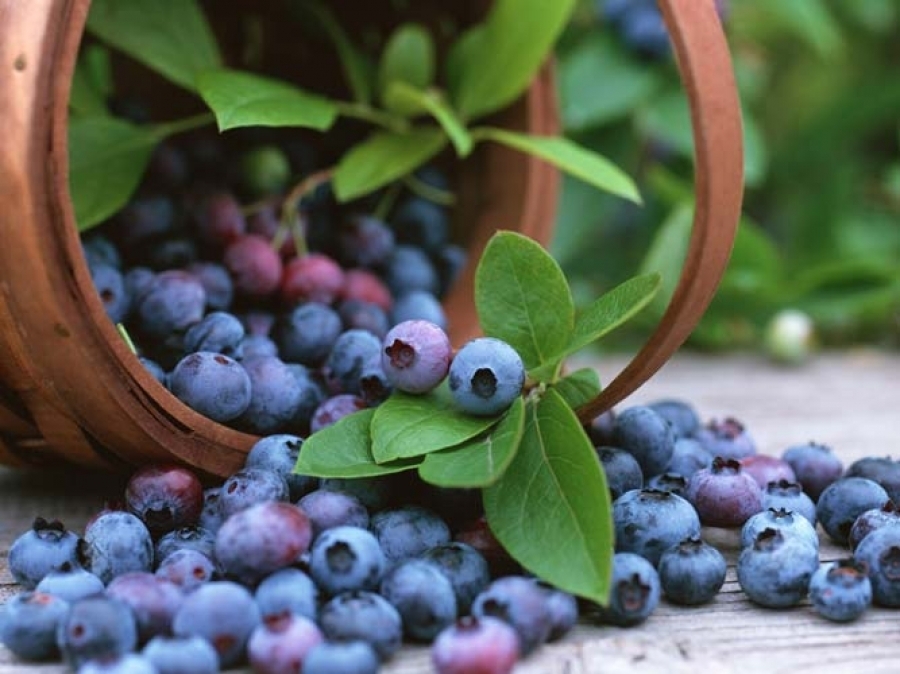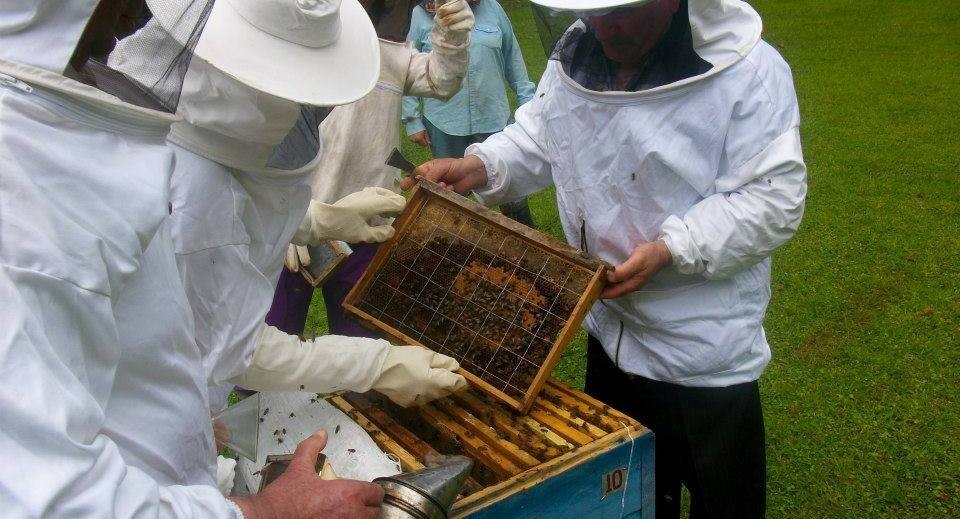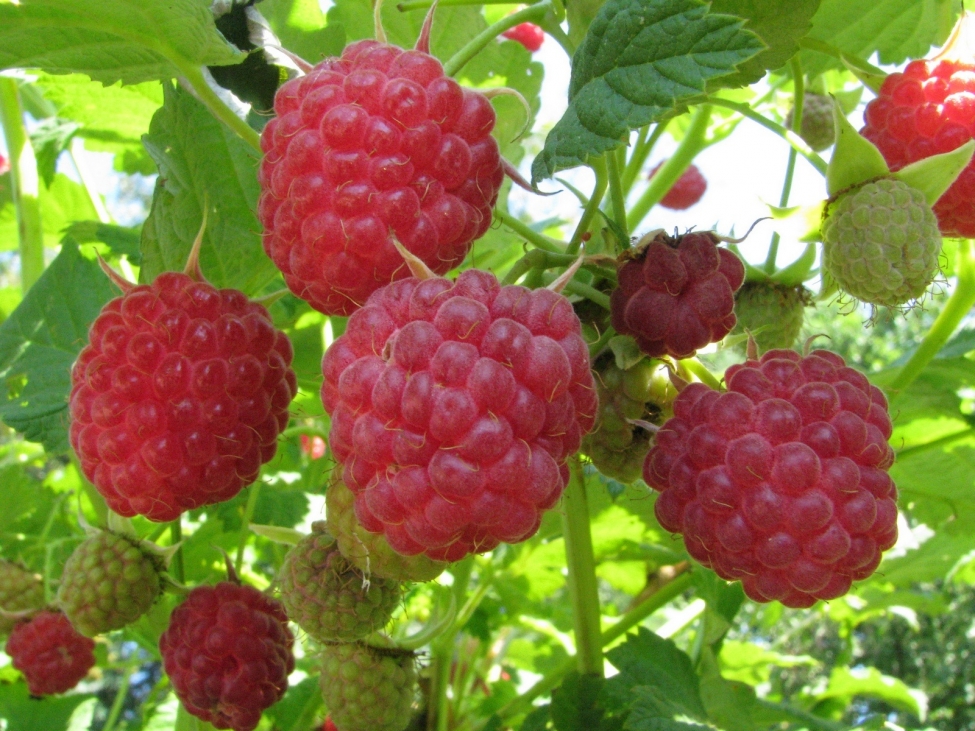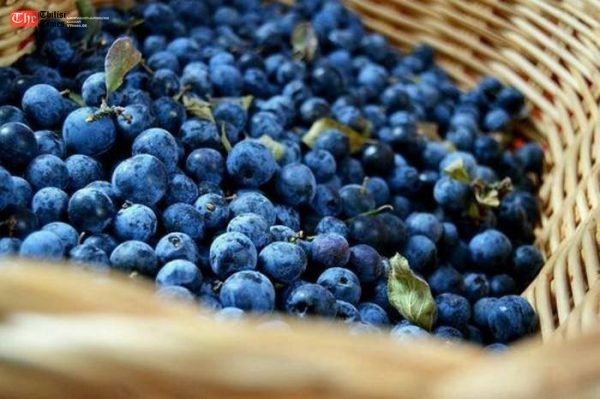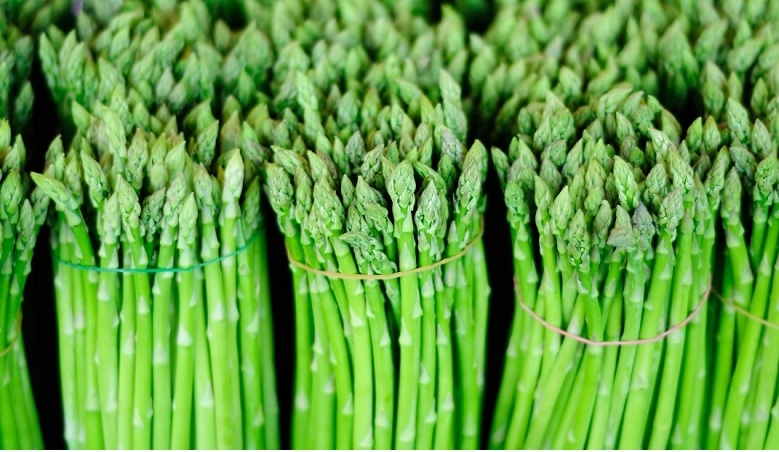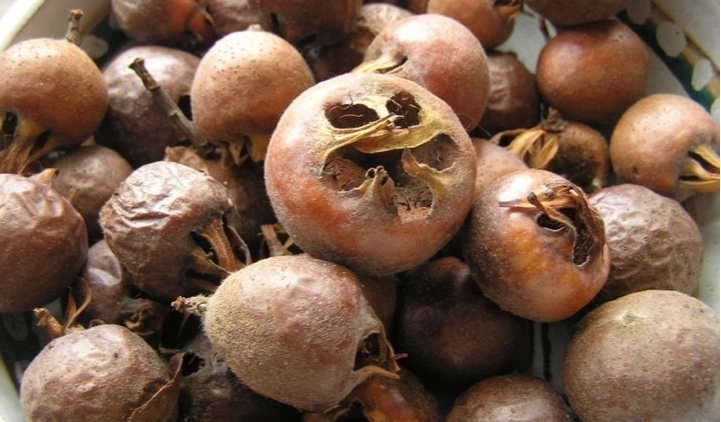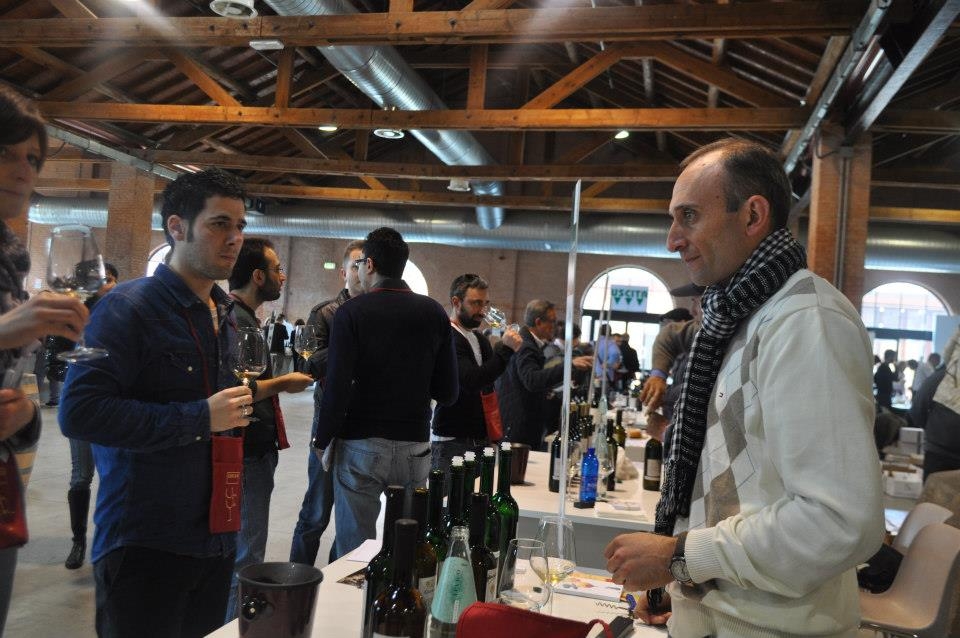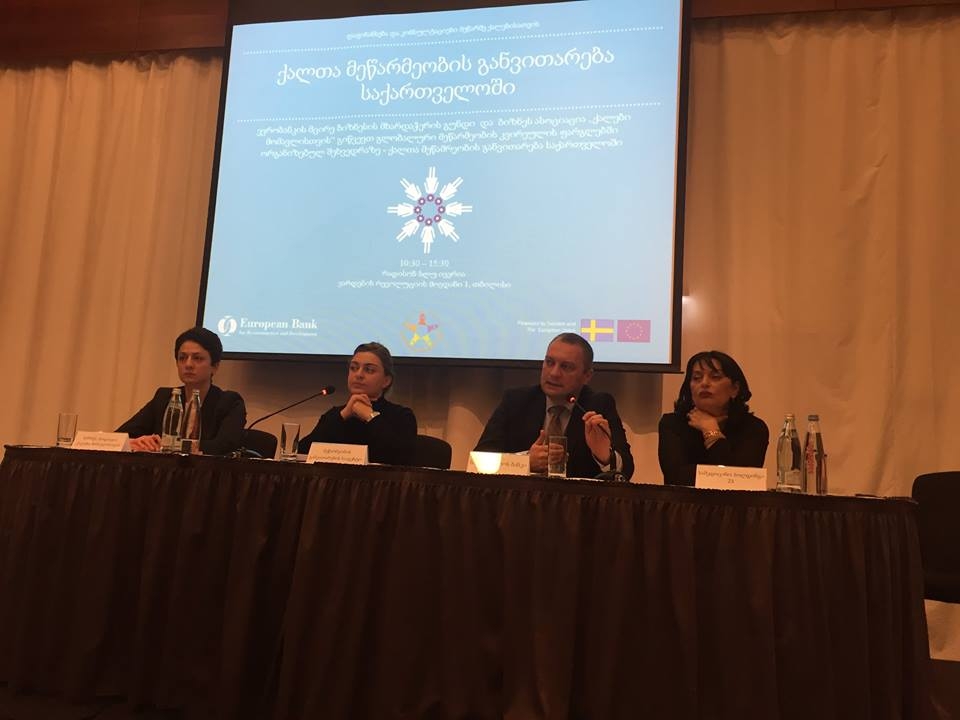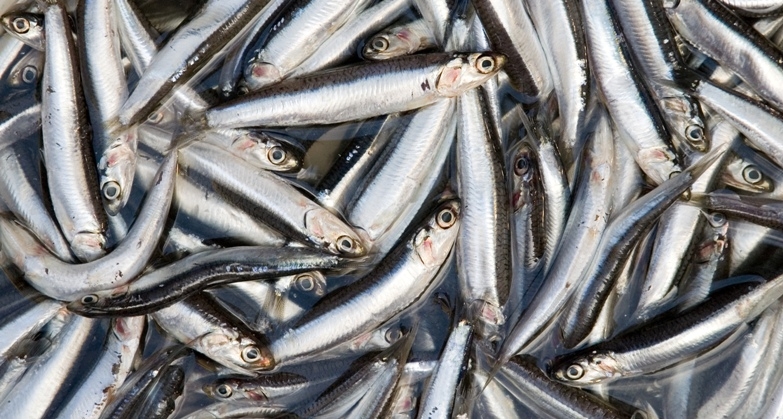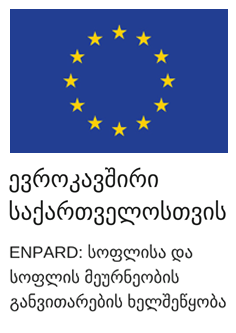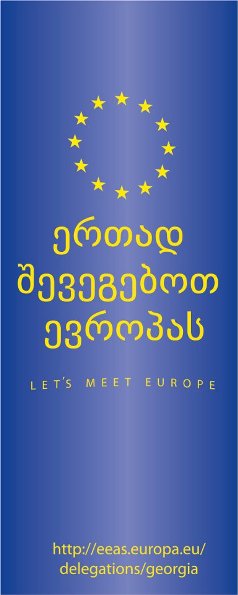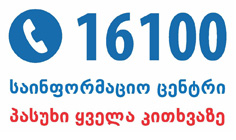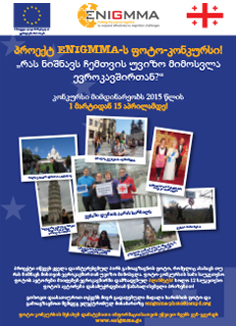FISHERIES AND AQUACULTURE IN GEORGIA (INDUSTRY RESEARCH)

Introduction
This document was prepared by the In-Depth Reporting and Economic Analysis Center with the support of the European Union and the Ministry of Foreign Affairs of Lithuania. The paper reviews key statistics on fish production, sector issues, causes of existing problems and recommendations to address the challenges facing producers. The information presented in the document is based on the data provided by the National Statistics Office, interviews with representatives of small and large farms in the field, and existing surveys and reports.
Overview of key statistics
Statistical information about aquaculture is quite poor and it is only available for 2017 and 2018. This certainly does not allow us to observe the dynamics of the sector developments, although it still gives us a general idea about the scale of local production. According to 2018 data, the amount of fish produced in the country is 2.4 mln tons, which is 17% higher than the previous year. Most of the production took place in Kakheti and Shida Kartli regions. In total, 58% of the fish were produced in these regions. This can be explained by the proximity of these regions to Tbilisi, which is the main market in the country.
The rainbow trout is the most common fish in pools and ponds, which belongs to the salmon family. It consists 61% of the total production. 44% of total rainbow trout production comes from Shida Kartli. The low rate of diversification of different species of fish produced in Georgia and the high rate of rainbow trout dominance are due to several factors. First, it should be noted that trout are cold-water fish, and mountain rivers creates a favorable condition for the production. Therefore, it is easier for farmers to adapt to natural conditions rather than to create a favorable environment for fish. In addition, the market demand for rainbow trout is quite high. This is evidenced on the one hand by the fact that producers have no problems with sales, and on the other hand by the fact that the share of rainbow trout in imported fish is quite high. Another important factor is that trout are easier to breed than other species of fish.
The second most widespread species of fish is carp, which occupies about 18% of total aquaculture production. Carp is most common in Kakheti region.

Source: National Statistics office of Georgia
Unlike farm-based fish, the amount of fish (anchovy) caught on the local shores of the Black Sea is demarcated by preliminary defined quotes. These quotes range between 60-90 thousand tons per year and is established by the government based on scientific research of fisheries.
Apart from production, it is important to assess demand side as well. Fish consumption in Georgia is quite low. According to United Nations Food and Agriculture Organization (FAO) average fish consumption per year per capita was about 7.83 Kg in 2017, while it is significantly high in the world and equals to 20.5 Kg. Average fish consumption in Europe is 21.3 Kg, and more than 30 -40 kg in Asian countries. For example, average fish consumption per year is about 42 Kg in China, which is number one producer of fish and aquaculture (According to World Bank, total production was 69 mln tones in 2019, which is about 62% of total aggregated production). Low consumption level in Georgia can be explained by low fish culture and existing social-economic situation. It should be noted that the demand on fish increases with the increase of number of tourists in Georgia.
The largest part of local consumption is fulfilled by imported fish. According to the National Statistics office of Georgia total local production satisfies only 10-15% of local consumption. Total amount of imported fish for 2014-2020 period was 113 thousand tons. 90% of them come from frozen fish, and the remaining 10% from live fish, fresh or chilled fish and fish fillets and other fish meat. During this period, 58% of live fish imports came from Armenia, 27% from Turkey, and the remaining 15% from 16 different countries around the world. In the case of frozen fish, importing countries are more diversified, Norway and Iceland lead with 18-18% of imported fish, Spain with 16%, and the remaining 48% were imported from 51 different countries around the world. Fresh or chilled fish is mainly imported from 2 countries -Norway and Turkey. During this period, 51% of imports came from Norway and 43% from Turkey. Fresh or chilled fish are regularly imported from these countries, while the remaining 6% are imported from different countries inconsistently and it has one-time nature. It should be noted that fresh or chilled fish imported from Turkey has an increasing dynamic, while fresh or chilled fish imported from Norway is declining every year. This may be explained by the fact that the average price of fish imported from Norway is much higher than the price of fish imported from Turkey. In the first case, this figure is equal to an average of 10 USD by 2019, and in the second case - 4 USD.
Import quantities are homogeneous by months, it decreases relatively during the summer, which can be explained by the fact that supply of locally produced fish increases during that period.

Source: National Statistics office of Georgia
Export is significantly small compared with imports. Total 37 thousand tons of fish were exported from Georgia during 2014-2020 period. The largest portion were exported to Turkey. 80% of total exported fish comes from fresh or chilled fish during this period. Export quantities are very instable by the years. It should be mentioned that the high rate of exports of live or chilled fish is due not to the fish produced on farms, but to the export of anchovy and other species caught in the Black Sea.
Aquaculture sector is mostly consisting of households and small producers, which produces no more than 8-10 tons per year. This small-scaled production is seasonal and oriented to Spring-Summer period when tourist flows increases. An official statistic about household production does not exist, however, information about the officially registered individuals and legal entities is available.
According to the business registry of National statistics office of Georgia, number of registered economic entities who classifies their activities as freshwater aquaculture, decreases. As of March 2019, the number of active economic entities is 60, while for 2014 it was 71. It should be noted that the survival rate of newborns in the field of fisheries and aquaculture is very low. Only 16.7% of economic entities registered in 2014 continued their activities after 4 years of their registrations, which means that only one managed to maintain its activities out of every 6 enterprises registered in 2014.
Source: National Statistics office of Georgia
For the same period, 70 entities are registered in the field of marine fishing, of which only 25 are economically active. There are 5 licensees who have the right to catch anchovy in the Black Sea among these 25 economically active entities.
existing challenges
Aquaculture
World trends show that the share of fish caught in in the seas and rivers decreases while share of fish in pools and ponds increases. aquaculture is becoming widespread in different countries of the world and it is believed that it has high development potential in Georgia as well. Georgia is a country with rich water resources which is one of the most important factors for the development of this sector. The optimal use of existing resources gives opportunities to increase the scales of farms.
According to the research conducted by the sectoral and regional development company of Georgia in 2018, potential production capacity of freshwater agriculture is 5.4 thousand tons per year, Fish produced in a ponds – 47 thousand tons, in artificial pools – 8.9 thousand tons, While fish produced in lakes is 9.9 thousand tons. Production scales in 2017 2018 shows that only 6% of total existing potential is used. Average consumption of fish in Georgia ranges between 20 to 30 thousand tons per year which means that in case of the additional development of farms and full use of capacities, it is possible to fully satisfy the local demand and also enter to new markets.
Despite the facilitating factors of natural resources, producers face lots of difficulties which is why the sector has a low development rate. Private sector representatives are trying to respond existing challenges and facilitate sector development. the organic aquaculture development Association “Poreji” has been established in 2015 which unites 65 producers around the country. The existence of this Association makes simplified access to the important information and resources for the farmers, however, there are problems which are beyond the effort of private sector and requires active involvement of public structures.
Knowledge deficit
The knowledge deficit is the main problem which is still relevant not only for aquaculture but also almost every field of the economy. Most farmers and producers still use the traditional management methods and they have limited (or zero) access to modern technologies. The result of low awareness of farmers is that they still use wrong methods for fish production, and they do not have long term vision. They are mostly focused on only short-term results. Their activity mostly is an experiment and results mostly depend on luck, that is why many of farms finish their economic activity in a very short period after their establishment. For example, there were more than 100 trout farms in autonomous Republic of Adjara and today according Association “Poreji” only eight of them are active.
Lack of specialists is another important problem facing the field. There are no ichthyo-pathologists in Georgia which would give farmers qualified consultations about the diseases spread in the farm. Fish diseases are inevitable, and it is hard to prevent. Even in running water, it is possible for a fish to become infected with a bacterium or a virus. Therefore, having the right professionals is critically important for effective production management. Large producers have an opportunity to get consultations from foreign experts, however, it is not accessible for small farmers due to the high costs.
As we already mentioned the most widespread species of the fish in Georgian pools and ponds is rainbow trout. This spice is one of the vulnerable fish towards different diseases that is why its mortality rate is very high. When fish gets some disease, farmers try to save their fish in order to avoid anticipated financial loss. The absence of ichthyologists in the country makes it impossible to suspect a specific disease and prescribe appropriate treatment to the fish, so farmers use large amounts of antibiotics, which may temporarily save the fish, although these chemicals remain in the fish meat and finally transmitted to the consumer. This is a very critical issue in terms of food security.
Laboratory studies
In order to effectively manage fish-borne diseases on farms, it requires not only ichthyo-pathologists but also a full range of laboratories where the farmer / entrepreneur can test the fish for a specific virus or bacterium. Although, there are several private and public laboratories in Georgia today, they do not have the resources to perform tests on all types of viruses and bacteria that fish can have. This pushes the farmer / entrepreneur to take specific measures by himself to fight diseases. All of this is an experiment, which on the one hand is associated with high costs and on the other hand may be completely ineffective.
Fish produced in the Georgian farms is not allowed in the European market today. Conducting additional laboratory studies which prove food safety and fulfill the strict requirements of the directives, are needed. According to the information provided by the national food agency in the framework of government monitoring since, 2018 they are taking salmon species samples (rainbow trout) from existing fish farms. They are conducting laboratory studies on the figures presented in the EU guideline for third countries. This guideline specifies exactly which group of veterinary drugs or chemical contaminants should be identified in the food. Therefore 38 indicators of different groups are tested in the laboratories including stilbens, steroids, antimicrobials, nitrofurans, nitroimidazoles, anthelmintics, chloride compounds, heavy metals, and dyes. Laboratory research is carried out in the laboratory of the Institute of Food Safety, Animal Health and Environment "BIOR" in Riga, Latvia, as laboratories in Georgia in some cases cannot study all the required indicators (for example, dyes) and / or do not have an accredited research method, which is mandatory.
Fish food
The high cost of fish food is constantly at the top of the number of problems for all farmers/producers. Farmers use both natural and combined food, which mostly contains anchovy. There is no local production of combined food and it is imported from other countries. To raise fish, it is important to give them all substances which are included in the natural and combined food, however, sometimes farmers cannot afford combined food due to its expensiveness.
With the depreciation of Georgian currency, food price has increased during last months. Due to the increased costs, producers prefer not to lose their clients and do not change fish prices. Therefore, they get lesser profit margins. Imported fish is considered as a main competitor for local production. The average price of 1 kg imported frozen fish was about 2.6 USD for 2019-2020 years, while 1kg locally produced trout costs about 12 GEL, Karp- 6 GEL, Salmon – 14GEL, sturgeon-25 GEL at a retail market. Producers claim that locally produced fish is popular among consumers because of its taste. Despite this supremacy, considering the social-economic background of the country, price increase is a risky decision for producers, and they are forced to stay on low margins.
Breeding problems
Another important problem is related to healthy genetics of fingerling. There are several large farms in Georgia now, which produce spawn (mostly trout farms) for their own consumption and for the local market as well. Considering that there are no proper conditions for the prevention and treatment of diseases spread in reservoirs, fingerlings grown from this spawn and then fish have low resistance to various viruses and bacteria. Therefore, fish mortality rate is very high. Additionally, fish spawns once a year, as a result, production cycle is different in different fish farms, while fish supply is seasonal. Due to unstable supply, groceries or commercial supermarkets often refuse to cooperate with local producers and prefer imported fish, which is stably supplied to the market throughout the year.
In addition to the large farms that produce their own spawn, there are also other large farms that prefer imported spawn and they produce their own fingerlings from this imported spawn. Of course, this is associated with higher costs, however imported spawn allows them to constantly have fish in the ponds and ensure a stable supply. Unfortunately, small-scale farms do not have the luxury of buying spawn abroad. Accordingly, they are depended on spawns and fingerlings grown in the local market.
The private sector is trying its best to solve the problem related to healthy genetics. Last fall, with the support of donor organizations, the Association "Foreji" launched an enterprise that imports spawn from various European countries and grows fingerlings from this imported spawn. After that, these fingerlings are already available to all interested farmers / producers. Spawn imports and fingerlings production are continuous throughout the year, allowing farmers / producers to continuously produce fish on their farms and to supply the market steadily. At this stage, the enterprise has a stock of 40 tons of fish, but in the future, it is expected to increase production capacity. In order to increase the scale of production and the development of the field, healthy genetics of the fish is an important issue. First steps in this direction should be to increase awareness of farmers, the availability of professional ichthyologists and ichthyo-pathologists and laboratory resources.
It should be noted that spawn enters Georgia by air, and the ban on air traffic has suspended the activities of farms that depend on imported spawn.
Marine fishery
Fish caught in the shores of the Black Sea is accepted by the European market, which gives opportunities for local producers to export raw and processed fish products (Fish flour and fish oil) to the European market. Despite this, only a small amount raw and processed anchovy is exported to the European market and producers mostly are oriented on Turkish market.
Licensees are selling a very small portion of total caught fish from Georgian shores of the Black Sea as a fresh. They mostly produce processed fish products such as fish flour and oil. The main market for both, fresh and processed fish products is Turkey. In case of fresh fish, the best option it exporting to Turkey due to the geographical proximity. Export of fresh fish to the Turkish market is more secured, as the risk of fish damage is low. When transportation time increases, the probability of fish damage also increases. Freezing of fish would solve this problem, however, this method is not attractive alternative for the farmers. They claim that Georgian anchovies are too small and less attractive for European partners. Therefore, considering the increased cost of freezing on the one hand, and low demand on the other hand, trade with frozen fish is not an attractive decision for the licensees. Instead, they process most part of natural recourses by themselves and export mostly to Turkish market.
Laboratory studies
Fish flour and fish oil are not included in the perishable product category and it is possible to deliver those products to the far distances. However, market is less diversified and there is only one entity among all licensees who managed to enter to the European market, specifically in Greece. It is publicly accepted that European market has a very strict regulations about food security. Therefore, while exporting fish flour and fish oil to the European market, business operator should have relevant documentation, proving food safety and fulfilling all requirements introduced by a specific country.
As of today, none of the laboratories operating in the local market, including the state laboratory, has the resources to test fish flour and oil for all the parameters required by European partners. According to a representative of the Agriculture Laboratory, at this stage fish flour and oil cannot be tested for dioxin and mercury because it is quite an expensive procedure. Due to the small number of companies in the market that need to conduct these analyzes, under low demand, the laboratory will never be able to generate enough revenue to balance the costs incurred. As a result, local business operators have to use the services provides by the foreign laboratories, which on the one hand, is very costly, and on the other hand it requires time resources. As a result, communication with potential partners in Europe may be disrupted and the deal may not be finalized.
On the one hand, the money spent on laboratory tests, on the other hand, the income that they must give up due to the existing challenges, are a significant financial and economic loss for them. According to the producers, the prices of both fishmeal and oil in the European market are higher than the prices in our neighboring countries, but given the current situation, they still rely on Turkey.
Fee setting rule
As mentioned above, the amount of anchovy to be caught each year is determined by the state. It is noteworthy that one of the licensees, MBM Ltd., doubts the correctness of the quotas set by the government and points to the existence of corrupt deals. In 2019, the total quota of anchovy was set at 95 thousand tons, which is higher than the quotas imposed in previous years.
Increased quotas often become a significant challenge for licensees, as the taxes they pay are determined not by the number of fish caught, but by the percentage they have in a quota pre-determined by the state. If, for example, the state has set a high quota, but there are no resources in the sea, the entrepreneur has to pay more in the form of tax than he would have paid by taxing the income from caught fish. This approach is particularly damaging to licensees who have a larger share of the quota than others.
Recommendations
Aquaculture has become the main research object for several research organization during last few years. In-depth Reporting and Economic Analysis Center has prepared several articles focused on this issue. Farmers/producers and/or field specialists always were complaining about the existing problems. However, old researches, reports and articles shed light that challenges still exist. All of this can be the indicator for low rates of development of Georgian aquaculture. Besides, active measures have not been taken to tackle existing challenges.
The presence of specialists in the field, ichthyo-pathologists, is important for the existence of an effective mechanism for controlling the spread of diseases on farms. The Ministry of Agriculture and Environment is trying to promote the development of the sector. They periodically invite specialists for local farms, which is quite costly. Nevertheless, the result achieved is not favorable, as this is not systemic. Another important problem is that the recommendations made by the invited specialists are general in nature and often do not meet the challenges facing farmers / producers. Virus, parasite or bacterium adapts very easily to the local environment; therefore, ichthyologists and ichthyo-pathologists need constant monitoring of the existing environment. The invited specialists are not familiar with the local environment, therefore, their advice and recommendations that are relevant to other environmental conditions may be completely useless in preventing the diseases spread on local farms.
Considering the above, existence of professionals in Georgia who are well acquainted with the problems of the field and will be able to make accurate conclusions and diagnoses on the existing environmental conditions, is critically important. Inviting foreign specialists is very important, but effective steps need to be taken to train and retrain local staff. It is essential that appropriate educational programs be available in vocational schools in the country. At the same time, the government should start active promotion of this field among young generation so that they have a desire to choose this profession.
For the development of the field It is also important to have a full range of laboratories, which will have the appropriate material and technical base to respond to customer requirements. To ensure the quality of fish, it is important to check water and food in existing laboratories and perform any type of bacteriological and virological analysis. According to the best-case scenario, the ichthyo-pathologist should suspect a specific disease through observation, and at a later stage, this suspicion should be confirmed in the laboratory in order to prescribe appropriate treatment for the fish. In such a case, the farmer is provided with precise instructions on how to treat the fish, which ensures the reduction of mortality, optimal cost planning and maintenance of the quality of the fish as a consumer product.
Providing laboratories with the appropriate equipment and machinery to enable farmers to perform all types of tests requires lots of investment. Given the scale of the local market, it is natural that it would not be financially feasible for private laboratories to put large investments as they would never get a return from this investment under local demand.
Given the current situation, it is possible to consider two scenarios: A) Invest in the development of a laboratory that will have international recognition and accreditation and which will provide services not only to farmers / producers across the country, but also to other countries in the region. B) Equip the state-owned laboratory in such a way that it can perform all the analyzes and tests necessary for the efficient operation of farms. All this, on the one hand, will facilitate and accelerate the process of approximation of local legislation with European legislation, and on the other hand, will open the way for local farmers / producers to enter the European market. Diversification of export markets is the basis for the development of foreign trade. Therefore, the barriers that prevent local entrepreneurs from gaining the benefits of the DCFTA should be minimized at the legislative or infrastructural level.
Although Georgia has all the conditions for this, the combined fish feed is not produced in the local market. One of the most important components of combined feed is anchovy, which is widespread in the country’s shores. It is also noteworthy that the anchovy caught in the Black Sea contains high level of protein, which stresses out its advantage. This figure is equal to 74% in the case of locally caught anchovy, while in the case of other countries it does not exceed 64-65%. Anchovies caught in the Black Sea is almost entirely exported in the form of raw or processed (fish meal and / or oil). There is no possibility of producing combined food using the local raw materials, while aquaculture producers must import expensive food, which significantly increases production costs. It is noteworthy that in recent years there have been attempts to produce fish feed in the local market, but they experienced failure. The quality of the food produced was very low and the price was only slightly lower than the price of the imported food, therefore, fish producers chose the imported product again.
For the development of the sector, along with the elimination of other obstacles, local availability of essential raw materials needed for fish is an important issue. Georgian market is so small that it does not make sense to start production just to meet local demand. This will not be profitable for the private sector and will be doomed to failure and will share the fate of enterprises that have had attempts of local production. The only solution is to develop large-scale production, which will focus not only on the local, but also on export markets. This is where the role of the government is critically important. The government should actively start working on attracting investments in this direction. A combined food enterprise created with foreign capital, knowledge and technology will facilitate access to important resources for aquaculture producers, which will become an accelerator of the development of the sector.
In the context of fisheries, quota setting process should be more transparent. Business operators should have clear and justified information about the increase or decrease of the quota set by the state in a particular year. In addition, it is important to reassess the method of calculating the fee payable by the licensee. Taxing licensee with the fee imposed on the natural resource actually obtained, would put all business operators on an equal footing and in case of a fish shortage, non-utilization of the imposed quota will not become an additional financial burden for the licensee.
The article is prepared with the financial support of the Ministry of Foreign Affairs of Lithuania and "Development Cooperation and Democracy Promotion Programme."
